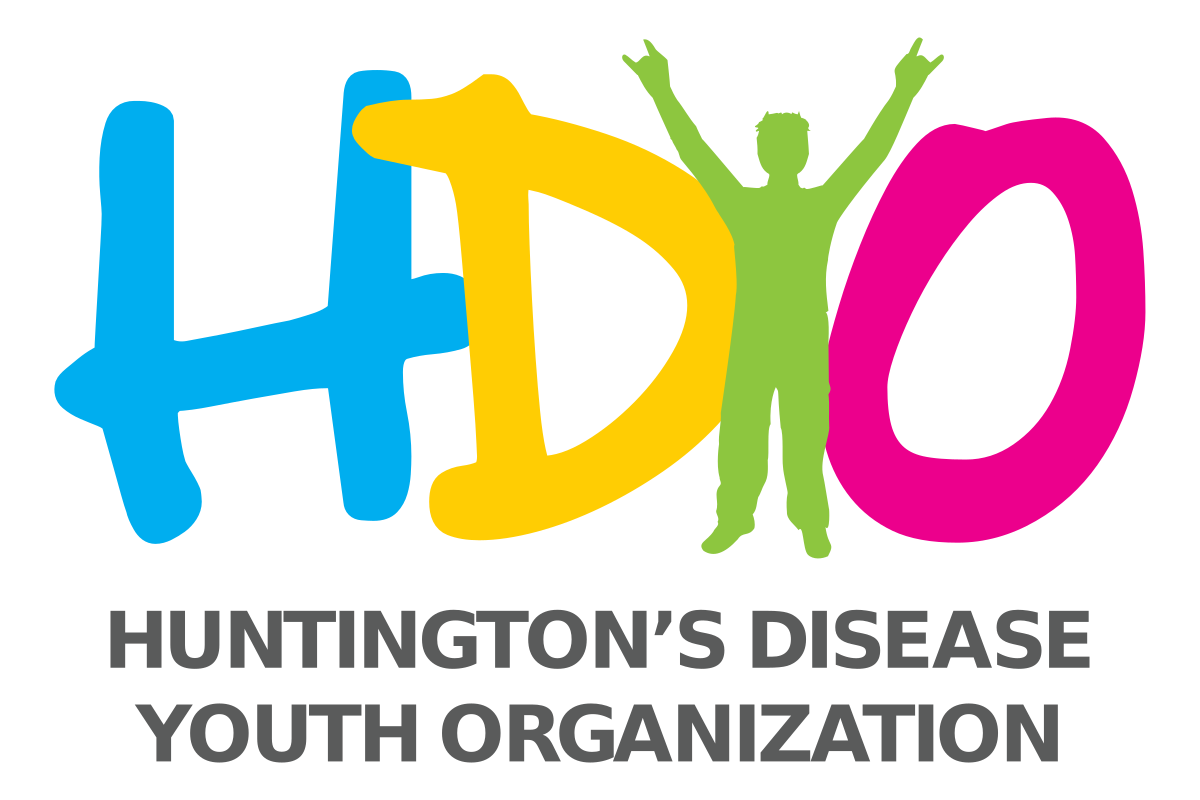Understanding Gene Positive
January 27, 2025

HDYO has more information about HD available for young people, parents and professionals on our site:
www.hdyo.org
**Reviewed by Education and Research Committees 2024*
The Huntington’s Disease (HD) community faces unique challenges, particularly in how language shapes perceptions and experiences. Within this community, the terms used to describe genetic status can have profound effects on people. Understanding the importance of these terms is essential for fostering a supportive environment and promoting positive mental health.
HDYO’s Definitions of Terms: “Gene Positive” vs. “Having HD” vs “Impacted by HD”
- Gene Positive: This term refers to people who carry the HD gene mutation but who may not yet show symptoms. Being gene positive does not always mean a person has symptoms of HD. Many people who discover themselves carrying the HD gene mutation, will continue to live symptom-free for years.
- Having HD: This term refers to people who are experiencing symptoms of HD. This may include a formal diagnosis from a medical professional. People can also experience symptoms before receiving a formal diagnosis of HD.
- Impacted by HD: This term describes anyone who knows someone who has HD. This may include people who know their genetic status, those at-risk, caregivers, family members, friends, partners, medical professionals, etc.
Emotional and Psychological Impacts of These Terms
Terms used to describe HD can trigger strong emotional and psychological reactions. For people who are gene positive, the label may cause significant anxiety about their future. Being identified as "having HD" can also lead to stigma and the perception of being “sick”, which may intensify feelings of isolation and hopelessness.
Potential Harm of Mislabeling as “Having HD”
For people who are gene-positive, being prematurely labeled as "having HD" can be misleading and harmful. Mislabeling creates unnecessary anxiety and introduces emotional, practical, and social challenges, that affect how people navigate their lives and plan for the future. While some members of the HD community may not feel affected by such labels, understanding each person’s perspective and needs through open communication can help minimize the negative impact.
Here is an overview of these implications:
- Being Considered “Sick” Before Showing Symptoms: Prematurely labeling someone as ‘sick’ can lead to the assumption that a person is symptomatic or impaired in their day-to-day life, even if they show no symptoms of HD. This label can be isolating and disempowering, affecting a person’s confidence and changing how others - family, friends, and colleagues - interact with them. People who mean well may offer excessive caution or sympathy, making it harder for gene-positive people to be seen as capable and healthy in the present.
- Fatalistic Planning: Being labeled as “having HD” can lead people who are gene-positive to prepare for significant physical limitations too early. For example, a young adult in their 20s might feel compelled to consider home modifications, such as installing wheelchair ramps, even though they may remain asymptomatic for years. This early planning can take away the chance to fully enjoy their present stage of life and fosters a sense of inevitability and loss over a future that could still include many healthy, fulfilling years.
- Fears of Discrimination: For people who are gene-positive, knowing their HD status can create intense fears about potential discrimination. People may worry about being denied essential medical care or health insurance. These concerns might extend to the workplace, where they may fear that their HD genetic status could jeopardize their job security, limit career opportunities, or lead to unfair treatment. The fear of being seen as “high-risk” intensifies the emotional burden, leaving them uncertain about their ability to afford care or secure their future in a society that may not understand HD. This internalized fear adds significant emotional strain, complicating the experience of living with a gene-positive status even before symptoms appear.
- Reluctance to Plan for the Future: People who are gene-positive and labeled as “having HD” may feel reluctant to make long-term plans. They might resist investing in their future, fearing that any goals or dreams may be cut short by disease onset. This perception of a “robbed future” may undermine their sense of purpose and limit their aspirations. They might hesitate to pursue education, career, or family plans. Instead of looking forward with optimism, they may feel inclined to hold back, creating a sense of loss and limitation on their future.
- Relationship Strain: For people who are gene-positive, fears of becoming a burden can lead to hesitation in forming new relationships. People may worry that potential partners will struggle with the realities of HD or that they themselves might eventually need extensive care. These concerns can lead to anxiety about future planning and family planning. Being prematurely labeled as symptomatic can shift dynamics with friends, family, and partners who might react with caution, sympathy, or fear. This altered perception can leave people who are gene-positive feeling misunderstood or viewed as fragile, fostering a sense of isolation and making it harder to maintain supportive connections.
The Importance of Sensitive Language in the HD Community
The language we use can dramatically alter the experiences of people within the HD community. Acknowledging the harm caused by labeling is the first step toward healing.
- Emphasizing the future opportunities in life: It’s crucial to highlight that many people who are HD gene positive still have many fulfilling years of life ahead of them. This acknowledgment can foster hope and resilience.
- Adoption of holistic language: Using language that emphasizes the person rather than the disease can encourage a positive identity. Phrases like "living with the risk for HD" or "navigating life as a person who is gene positive" separates the person from their genes, reflecting that who they are is nuanced and complex, and HD is only one part of their story.
- Avoiding Assumptions About Progression: Using language that does not presume a certain timeline or inevitability for symptom onset can help people feel less pressured by societal or personal expectations. Instead, phrases such as "each journey is unique" or "focus on the present" allow for a more personalized and empowering narrative.
Conclusion
Supporting the HD community is not a one-size fits all approach. Sensitivity in language is essential for promoting understanding within the HD community. The impact of words can be profound and can influence how people cope with their genetic status. By fostering a deeper understanding of the unique experiences within this community, we can encourage a more supportive environment that acknowledges the complexities of living with the HD gene. Words matter, and the way we communicate can leave a lasting impression on the mental health and well-being of young people navigating their genetic status.



